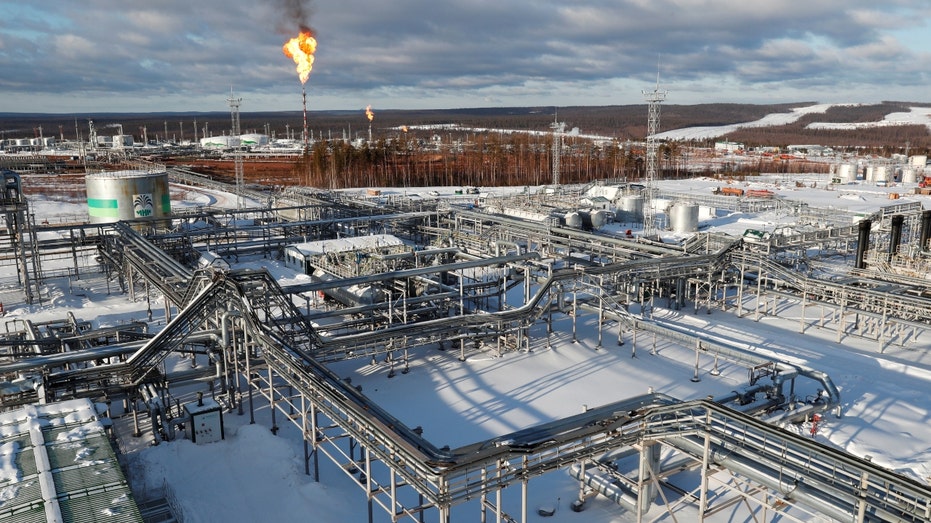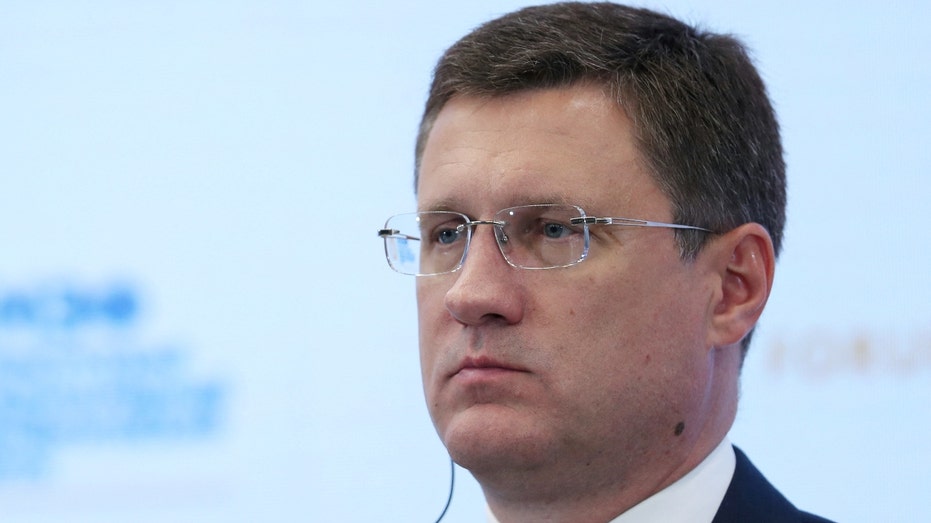G7 unveils plan to cap price of Russian oil in global markets
Wealthy nations intend to wield power over shipping insurance and finance to force Russia to comply
Russia has 'complete leverage' over energy battle in Europe: Military expert
Defense Priorities senior fellow Lt. Col. Danny Davis tells 'Cavuto: Coast to Coast' it will be tough for the West to maintain unity in Ukraine once winter starts and energy prices rise.
The Group of Seven industrial nations pledged on Friday to cap the price of Russian oil on global markets.
The plan aimed to limit the Kremlin's revenues and the ability to fund the war in Ukraine, as well as reduce the war's impact on inflation and energy prices.
The G7 finance ministers said the cap would be imposed by prohibiting insurance or shipping companies from helping Russia sell oil at prices above the set limit.
"The price cap is specifically designed to reduce Russian revenues and Russia´s ability to fund its war of aggression while limiting the impact of Russia´s war on global energy prices, particularly for low and middle-income countries, by only permitting service providers to continue to do business related to Russian seaborne oil and petroleum products sold at or below the price cap. This measure would thus build on and amplify the reach of existing sanctions, notably the EU´s sixth package of sanctions, ensuring coherence through a strong global framework," the group said in a statement. "We welcome the decision of the European Union to explore with international partners ways to curb rising energy prices, including the feasibility of introducing temporary import price caps."
The ministers said sanctions imposed on Russia already have a considerable impact, one that would amplify over time.
ZELENSKYY SAYS UKRAINE CAN BE 'STABLE' ENERGY SOURCE FOR EUROPE: 'WINTER WON'T BE EASY'

A general view shows an oil treatment plant in the Yarakta Oil Field, owned by Irkutsk Oil Company (INK), in Irkutsk Region, Russia March 10, 2019. Picture taken March 10, 2019. (REUTERS/Vasily Fedosenko / Reuters Photos)
The G7 chiefs said it invites all countries to provide input on the price cap's design and to implement the measure.
"We will also develop targeted mitigation mechanisms alongside our restrictive measures to ensure that the most vulnerable and impacted countries maintain access to energy markets including from Russia," they stated.
The initial price cap will be set based on a range of technical inputs and get decided by the entire coalition in advance of implementation in each jurisdiction.
The cap's effectiveness will be monitored, and the price level revisited as necessary.
The announcement didn't include the level of the price cap would be set nor specified when the G7 aims to finalize the plan.

FILE - Britain's Chancellor of the Exchequer Rishi Sunak, center back, and U.S. Treasury Secretary Janet Yellen, back right, during a meeting of finance ministers from across the G7 nations at Lancaster House in London, on June 4, 2021. (Stefan Rousseau/Pool via AP, File / AP Images)
GET FOX BUSINESS ON THE GO BY CLICKING HERE
"We envisage that the coalition establishes a cooperation framework across jurisdictions to ensure compliance and enable monitoring and supervision. Once operational, the coalition may consider further action to ensure the effectiveness of the price cap. The price cap measure will be reviewed and reconsidered when appropriate," the statement continued.
The ministers said, in line with G7 Leaders´ commitments, it would continue to encourage oil-producing countries to increase production to decrease volatility in energy markets and – in that context – welcome OPEC’s recent decisions to increase output amid tight supply conditions.
The G7 is made up of the United States, Germany, France, Britain, Italy, Canada and Japan.

FILE PHOTO: Russian Deputy Prime Minister Alexander Novak attends a session of the St. Petersburg International Economic Forum (SPIEF) in Saint Petersburg, Russia, June 4, 2021. (REUTERS/Evgenia Novozhenina/File Photo / Reuters Photos)
In a June meeting, G7 leaders agreed to explore a price cap but said the idea needed further discussion.
CLICK HERE TO READ MORE ON FOX BUSINESS
Russian Deputy Prime Minister Alexander Novak has said Russia will refuse to sell oil to countries or companies that observe the cap.
The Associated Press contributed to this report.





















